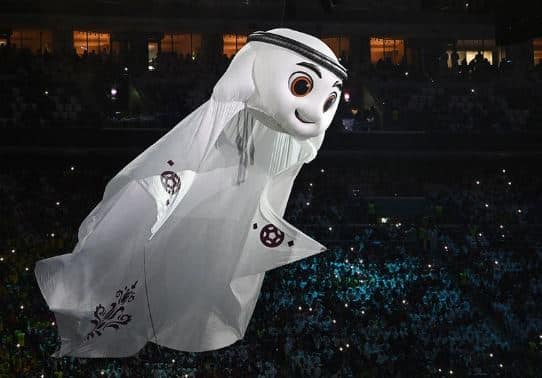In the lead up to the 2022 Qatar World Cup, the hosting of the tournament by the conservative Muslim state has been the source of much controversy in Western media.
On Thursday, less than 48 hours before the opening match between the host country and Ecuador, it was announced that alcohol would be prohibited from being sold in any of Qatar’s football stadiums. Controversy also arose on Monday afternoon when a plan for England captain Harry Kane to wear the rainbow-themed “OneLove” armband in his country’s match against Iran, was cancelled at the last minute due to an intervention from FIFA.
What has received virtually zero-coverage or criticism in the run up to Qatar’s hosting of the World Cup however, has been Doha’s instrumental role in fueling the 11-year long proxy war on Syria, a conflict that has led to thousands of deaths, an exacerbated refugee crisis, and the rise of ISIS.
In 2009, plans for the construction of a pipeline that would begin in the Qatari-managed North Dome gas field in the Persian Gulf, and which would then pass through Saudi Arabia, Jordan, Syria and Turkey on its way to Europe, were halted by the refusal of Syrian President Bashar al-Assad to take part, his close relationship with Russia being a deciding factor.
With the Arab Republic being a long-time opponent of the US-NATO hegemony, in which the Gulf States behind the pipeline play a key role, this refusal would act as a final straw for the regime-change lobby. A plan was quickly put in place to remove Assad from power.
To this end, the United States and a host of other countries would authorise a plan to provide arms, funding and training to Salafist militants in the hope that a sectarian conflict would topple Syria’s secular government, thus allowing a Western-friendly regime to be put in place.
Timber Sycamore, the official codename for this regime change operation, would officially erupt in March 2011, when protests in Damascus and Aleppo calling for government reform would rapidly escalate into violence that soon swept the entire country.
By 2013, the “Syrian Revolution” had seen vast swathes of the Arab Republic come under terrorist control, with Salafist groups from neighbouring Iraq, itself having been destabilised following the 2003 US-led invasion, crossing over to form the Islamic State of Iraq and Syria (ISIS) in April of that year.
In order to counter this onslaught and avoid the same fate that had befell Libya following a similar regime change operation, a common defence agreement between Syria and key-ally Iran was enacted and the Islamic Republic and Hezbollah would launch a military intervention in June 2013, with Tehran being acutely aware that had Damascus fell, Iran would have been next in line for the regime-change lobby.
Though this Iranian intervention would play a key role in repelling the Western-backed terrorists, what would perhaps be the most decisive factor in turning the conflict in Damascus’ favour would come in September 2015, when a Russian air campaign was launched in defence of the Arab Republic, allowing it to retake territories that had come under the control of the militants, such as the key city of Aleppo, liberated in December 2016.
Sensing that their regime change operation wasn’t going to plan, Washington’s Neocons would soon resort to desperate measures. In April 2017, a false flag chemical attack in the town of Khan Shaykhun was blamed on the Syrian government in the hope of triggering a US-led military intervention, something that almost came to fruition several days later when the then-Trump administration launched cruise missiles at a Syrian airbase.
Just stopping short of the full-scale intervention that had been hoped for, the same strategy would be carried out almost a year to the day later in the Syrian city of Douma, this time resulting in the United States, Britain and France launching airstrikes against government targets, again just stopping short of a military intervention that would have triggered a wider conflict between Russia and NATO.
Despite Qatar being a key player in the geopolitical impact of the Syrian war via its arming and funding of the terrorists who carried it out, a situation that almost led to a third world war, Doha has come in for little to no criticism from the Western media for its involvement amidst the 2022 World Cup coverage, Qatar’s banning of alcohol, and rainbow armbands, being a seemingly more pressing issue.


